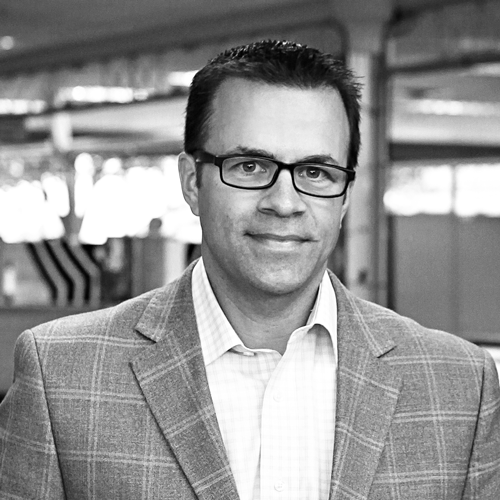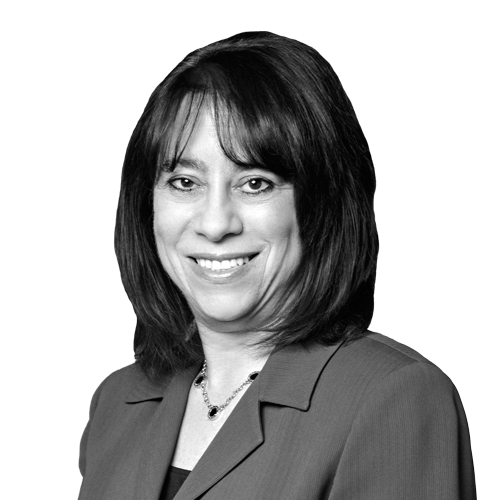
1. How does business development support the overall strategy of the organization?
First of all, an organization needs to develop a strategy. Once the company settles on a strategy, business development is one of the key components to secure the tools to advance that strategy.
In Yendro’s role, within specialty pharmacy, that means securing access to limited-distribution drugs within their target disease classes, negotiating viable contracts, and ensuring that Avella meets or exceeds the metrics the company sets for performance within their agreements.
“Business development is also responsible for looking into the future to make recommendations on areas for growth that the organization may want to consider,” Yendro says. “You can do a wide variety of things that you feel your customers want, or you can focus on doing the things they actually need better than anyone else. That is what I try to do in my role—constantly keep us focused on what is important to our customers and will drive the most value for Avella.”
2. Are your contracting strategies compliant with government regulations?
Companies need to focus on meeting government regulations throughout all facets of their business. Yendro works to ensure that the enhanced services Avella contracts for are within established fair-market-value parameters.
“I always joke that I am a lawyer by osmosis because I have absorbed so much knowledge handling contracts in various capacities,” Yendro says. “At Avella, I work with our inside counsel as well as outside counsel in regulatory matters to ensure our contracts are in compliance with established regulatory guidelines. This is important because the fines and penalties by the state and federal government would be detrimental to our business.”
In fact, Yendro has rejected contracts that may have paid Avella more revenue, but that could be seen as noncompliant with regulations.
“Many regulations are left for interpretation, and although we may be conservative in this interpretation, I feel it is important to protect not only Avella but also our customers,” Yendro says. “It is important that Avella has a strong reputation of doing things the ‘right way.’ Ultimately, that helps our business grow because customers choose to partner with us, knowing that we have their best interest in mind as well as our own.”
3. How do you enhance the effectiveness of our customer relationships?
Effective customer relationships—or lack thereof—can make or break a company. It’s a notion that Yendro doesn’t take lightly. “Specialty pharmacy is a very competitive market,” she says. “Customers still have a great deal of choice in who they partner with.” Yendro’s role is to help Avella go beyond basic drug dispensing and to differentiate Avella as a best-in-class specialty pharmacy partner.
To ensure the effectiveness of the company’s customer relationships, Yendro asks key questions such as, “How can I assist the brand manager in making strategic decisions for their product? How can we partner with small start-up biotech companies to stretch their resources and feel important among other larger companies in the launch phase and beyond? How can we utilize innovative technology to enhance the end user with various complex therapies?”
“Business development is the front line to the pharma manufacturer relationship,” she says, “and my goal is to have them see us as a partner invested in their success.”
She also tries to make sure customers understand Avella’s business. “We need to be transparent with them about what we can do—and what it costs to do it—so that we can structure agreements that meet the needs of both partners,” Yendro says. “I don’t want to promise something up front only to determine we do not have the infrastructure to support it at the cost we agreed upon. It takes a long time to build a positive relationship but a very short time to lose it.”
4. What important tools can be used to effectively manage and grow our business?
When Yendro was a district manager at a pharmaceutical company, each month she would receive a large box with pages of sales reports for her sales territories. “They were two months delayed in the data, so by the time they got to me, they were somewhat irrelevant,” Yendro says. “But it was all I had, so I would sit and pore through them to try to extract trends.”
As Yendro points out, today’s business environment is changing so rapidly that it is vital to keep up on new information in real time—making the above box of data seem archaic. Today Yendro is fortunate to have various pipeline analysis tools to help identify new agents to target as well as help forecast what Avella’s potential financial exposure could be.
“Our pharmacy operating systems and data-collection portals continue to be enhanced, which allows my team to provide in-depth quarterly business reviews that go beyond volume reporting, [showing] what trends in payers or adherence rates are impacting the drug,” Yendro says. “Even with all the technology available to us, I still place value on a face-to-face meeting with my team and our customers. Human interactions are still the best way to gain information, understand the underlying needs of an organization, and develop relationships that endure.”
5. What important events or changes should we be anticipating in the next one to three years?
With the rapidly changing dynamic in healthcare, an organization must not only evolve but must anticipate changes well ahead of time in order to adequately prepare. “For example, the recent move from ICD-9 to ICD-10 codes impacts reimbursement but also impacts our data reporting to manufacturers,” Yendro says. “These are changes you cannot make overnight. Forward-looking pipeline analysis is also important. While we can gain access to various drugs, I have to assess if our organization has the necessary infrastructure to adequately support it as well as have a positive overall margin.”
The professional development of Yendro’s team is an important future plan. As such, Yendro asks herself how she can develop her account managers to obtain new skills to enhance their effectiveness with their assigned accounts, or take on larger roles within Avella.
“I am also constantly trying to find areas that I could improve my knowledge and seeking ways to gain that,” Yendro says. “I am fortunate that I work with a very talented group of people that challenge me to think differently and look at things from various angles.”


